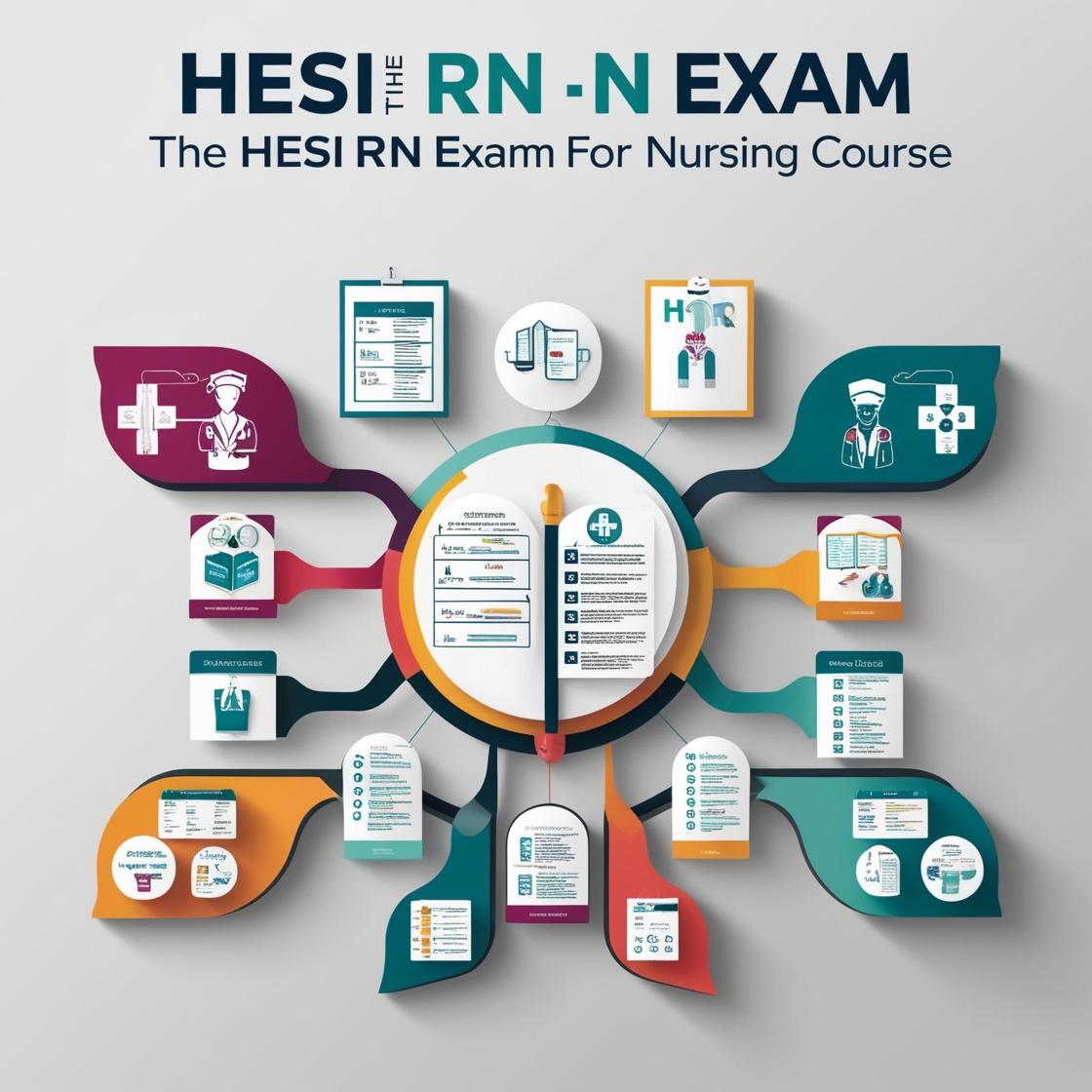HESI RN
HESI RN Exit Exam
1. A client with acute pancreatitis is admitted with severe abdominal pain. Which assessment finding should be reported to the healthcare provider immediately?
- A. Decreased bowel sounds
- B. Increased heart rate
- C. Decreased urine output
- D. Elevated blood glucose level
Correct answer: C
Rationale: Decreased urine output is concerning in a client with acute pancreatitis as it may indicate hypovolemia or renal impairment. In acute pancreatitis, decreased urine output can signify inadequate perfusion to the kidneys, leading to renal failure. While the other options are important to monitor in a client with acute pancreatitis, decreased urine output requires immediate attention to prevent further complications.
2. A client is admitted with a diagnosis of sepsis. Which assessment finding is most concerning to the nurse?
- A. Temperature of 101.5°F
- B. Heart rate of 110 beats per minute
- C. Respiratory rate of 24 breaths per minute
- D. Blood pressure of 90/60 mmHg
Correct answer: D
Rationale: A blood pressure of 90/60 mmHg in a client with sepsis is concerning for septic shock, a life-threatening condition that requires immediate intervention. Hypotension is a severe manifestation of sepsis that can lead to poor tissue perfusion and organ failure. While the other assessment findings such as an elevated temperature, increased heart rate, and respiratory rate are also common in sepsis, hypotension is particularly alarming as it indicates a critical state of shock and necessitates urgent medical attention.
3. A newly graduated female staff nurse requests reassignment to another client because a male client is asking her for a date and making suggestive comments. Which response is best for the nurse manager to provide?
- A. I have to call the supervisor to get someone else to transfer to this unit to care for him.
- B. I know you are a good nurse and can handle this client in a professional manner.
- C. I'll talk to the client about his behavior and insist that he stop it immediately.
- D. I'll change your assignment, but let's talk about how a nurse should respond to this kind of client.
Correct answer: D
Rationale: The best response for the nurse manager to provide in this situation is option D, which involves changing the assignment to address the nurse's immediate concern. It also offers an opportunity to have a conversation with the nurse about how to professionally handle such situations in the future. Option A is not the best response as it does not address the underlying issue and simply shifts the problem to another staff member. Option B, while supportive, does not actively address the client's inappropriate behavior. Option C is not ideal as the nurse manager should handle discussions about inappropriate behavior with clients themselves rather than delegating it to the staff nurse.
4. A client with a history of alcoholism is admitted with confusion, ataxia, and nystagmus. Which nursing intervention is a priority for this client?
- A. Monitor for signs of alcohol withdrawal.
- B. Administer thiamine as prescribed.
- C. Provide a quiet environment to reduce confusion.
- D. Initiate fall precautions.
Correct answer: B
Rationale: The correct answer is B: Administer thiamine as prescribed. Administering thiamine is crucial in clients with a history of alcoholism to prevent Wernicke's encephalopathy, which is characterized by confusion, ataxia, and nystagmus. Monitoring for signs of alcohol withdrawal (choice A) is important but not the priority. Providing a quiet environment (choice C) and initiating fall precautions (choice D) are important interventions, but administering thiamine takes precedence due to the risk of Wernicke's encephalopathy.
5. An adolescent's mother calls the clinic because the teen is having recurrent vomiting and has been combative in the last 2 days. The mother states that the teen takes vitamins, calcium, and magnesium supplements along with aspirin. Which nursing intervention has the highest priority?
- A. Advise the mother to withhold all medications by mouth.
- B. Instruct the mother to take the teen to the emergency room.
- C. Recommend that the teen withhold food and fluids for 2 hours.
- D. Suggest that the adolescent breathe slowly and deeply.
Correct answer: B
Rationale: In this scenario, the highest priority nursing intervention is to instruct the mother to take the teen to the emergency room. The symptoms of recurrent vomiting, combative behavior, and the medications (vitamins, calcium, magnesium supplements, and aspirin) taken by the teen suggest a possible overdose or serious adverse reaction. Therefore, immediate medical evaluation is crucial to assess and manage any potential toxicity or adverse effects. Advising to withhold all medications by mouth (Choice A) may delay necessary treatment. Recommending withholding food and fluids for 2 hours (Choice C) may not address the underlying cause of the symptoms. Suggesting slow and deep breathing (Choice D) is not appropriate in this urgent situation requiring immediate medical attention.
Similar Questions

Access More Features
HESI RN Basic
$69.99/ 30 days
- 50,000 Questions with answers
- All HESI courses Coverage
- 30 days access @ $69.99
HESI RN Premium
$149.99/ 90 days
- 50,000 Questions with answers
- All HESI courses Coverage
- 30 days access @ $149.99
